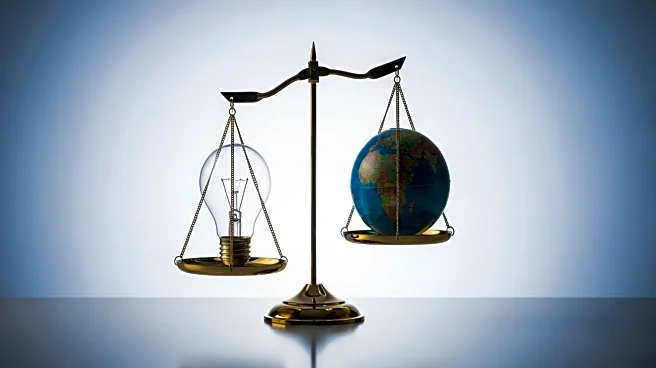What is the story about?
What's Happening?
President Trump has announced a significant increase in fees for skilled foreign workers applying for H-1B visas, raising the cost to $100,000. This move is part of a broader strategy to encourage tech companies and universities in the United States to prioritize hiring U.S. nationals for senior positions. The decision has sparked reactions from various stakeholders, including international professionals and companies that rely on foreign expertise. The fee hike is seen as a deterrent for highly skilled workers considering relocation to the U.S., potentially affecting the country's ability to attract global talent.
Why It's Important?
The increase in H-1B visa fees could have substantial implications for the U.S. economy and its competitive edge in technology and academia. By making it more expensive for foreign professionals to work in the U.S., the policy may lead to a talent drain, with skilled workers opting for countries with more favorable immigration policies. This could impact innovation and growth in sectors heavily reliant on international expertise. Companies that depend on foreign talent might face challenges in filling critical roles, potentially slowing down their operations and affecting overall productivity.
What's Next?
In response to the U.S. policy changes, the UK is considering reducing visa fees for highly skilled workers to attract top talent. This could lead to increased competition between countries for global expertise, influencing immigration policies worldwide. Businesses and academic institutions in the U.S. may need to adjust their recruitment strategies, potentially increasing efforts to develop local talent. The policy shift might also prompt discussions on immigration reform and its role in economic growth.
Beyond the Headlines
The fee increase raises ethical questions about the balance between national interests and global collaboration. It highlights the tension between protectionist policies and the need for international cooperation in fields like technology and research. Long-term, this could affect the U.S.'s reputation as a hub for innovation and its ability to lead in global scientific advancements.

















